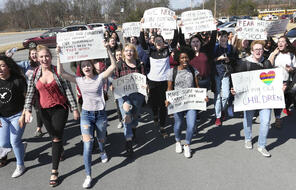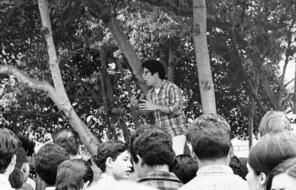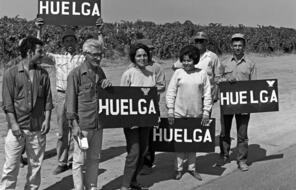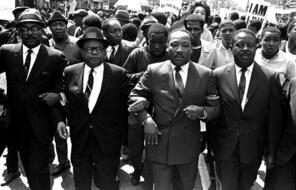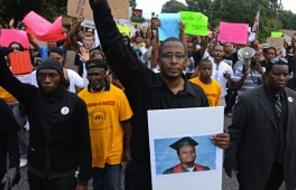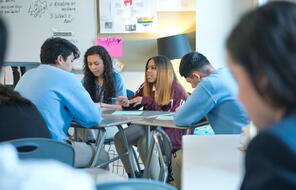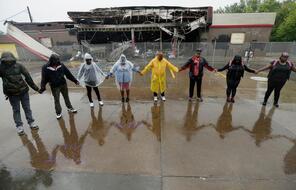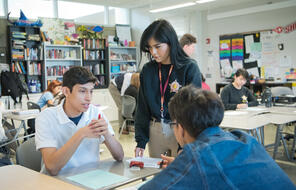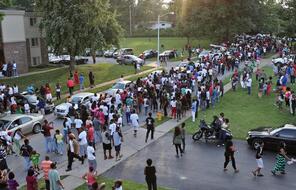Coming to America, Finding Your Voice
At a Glance
Subject
- Social Studies
- Democracy & Civic Engagement
In 2010, journalist Maria Hinojosa shared her “coming to America” story in the foreword to a book of writing by Boston high school students:
We all have a “coming to America” story. Whether you were brought to this country as a baby immigrant like me or whether you were born in South Boston, we all have a story of how we got to this “here.”
When I was almost two years old, my mom traveled from Mexico by plane with me and my two older brothers and sister. We were on our way to meet my dad, who had already moved to Chicago. We would live there first and then make our way to Brookline. But on this day, we had to pass the immigration checkpoint at the Dallas airport before we made our connection to Chicago.
The super-tall Texan immigration agent with the super-thick accent towered over my five-foot-tall mom who also had a very thick accent—a Mexican one. The agent inspected all of our green cards, looked my mom and the four kids up and down and apparently sideways, and then he bellowed out an order: "You are welcome to come into this country . . . " he said, his drawl lingering. But then he looked at me. "Everyone but that little baby. I can see a rash on her skin and she will have to stay in quarantine."
My mom didn't feel very powerful as she was being looked down upon and ordered to leave her baby behind in a new country. But she reached deep down inside and found her power in her gut and puffed up all the five feetness of her tiny body as tall as she could. And then, as if a volcano erupted inside her, she found her voice. She trusted her voice. And she looked up at that agent and said, "No sir! I weel not leeve my daughter here with chu. She is coming with me. She eez not sick! And I weel not leeve without her. Do you HEAR ME? I weel not leeve her here!"
The tall Texan suddenly felt very small next to my mother's big and powerful voice. "Yes, ma'am," he said. "You can all come in. I am sorry!"
Ever since I heard my coming to America story, I have used it as an inspiration to find my own gut, my own power, my own voice when I feel powerless. If mom could do that almost 50 years ago—tiny and accented and in a new country—I can surely find my own voice when I feel tiny and unheard and powerless.
Sometimes when you feel invisible, it's easy to feel voiceless. And when you feel voiceless, then you learn how to not use your voice. And when you don't use your voice, you don't hear yourself. And when you don't hear yourself, it's hard to trust who you are.
But with my coming to America story, my mom showed me that words are power. Your voice is your instrument—whether you speak (with an accent or not), write, sing or shout. It can be a literal sound or it can be your voice on a piece of paper or a computer screen. But it is yours. And it comes from your gut. So maybe you should trust it.
I remember thinking because I was a bit different, no one else saw the world like I did. I was a Mexican immigrant kid growing up on the south side of Chicago. There weren't a lot of other kids like me. I did feel different. I felt small. At times I felt voiceless. I thought I was the only student who felt powerless and not part of the “real America.” I know now that wasn't the case. I know now that many kids felt different but we just didn't talk about this. Ever. 1
- 1Maria Hinojosa, foreword to We Turned Back to See Where We Came From: Snapshots, Vignettes, and Stories(Boston, MA: 826 Boston, 2010). Reproduced by permission of 826 Boston.
Supporting Materials
How to Cite This Reading
Facing History & Ourselves, “Coming to America, Finding Your Voice,” last updated June 17, 2017, https://www.facinghistory.org/resource-library/my-part-story/coming-america-finding-your-voice.
This reading contains text not authored by Facing History & Ourselves. See footnotes for source information.


